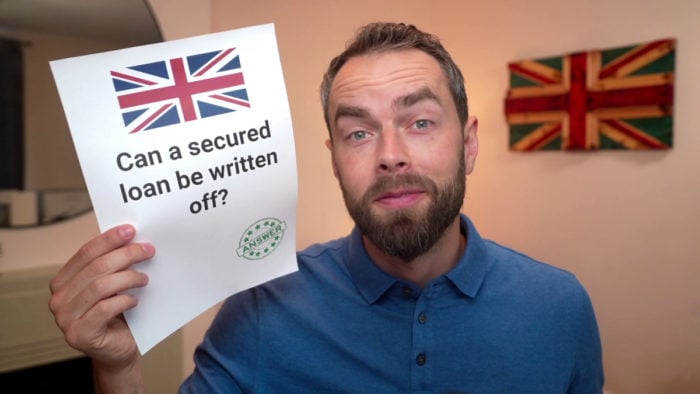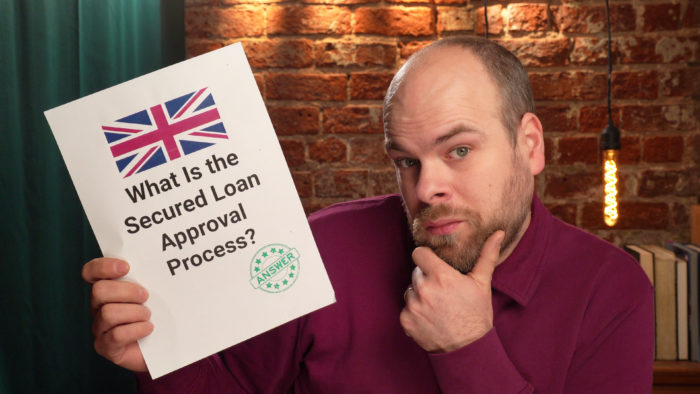Comparing Secured and Unsecured Loans: What’s the Difference
Representative example: If you borrow £34,000 over 15 years at a rate of 8.26% variable, you will pay 180 instalments of £370.70 per month and a total amount payable of £66,726.00. This includes the net loan, interest of £28,531.00, a broker fee of £3,400 and a lender fee of £795. The overall cost for comparison is 10.8% APRC variable. Typical 10.8% APRC variable
Representative example: If you borrow £34,000 over 15 years at a rate of 8.26% variable, you will pay 180 instalments of £370.70 per month and a total amount payable of £66,726.00. This includes the net loan, interest of £28,531.00, a broker fee of £3,400 and a lender fee of £795. The overall cost for comparison is 10.8% APRC variable. Typical 10.8% APRC variable
Thinking about getting a loan but don’t know where to start? You’re not alone – we help more than 170,000 people per month better understand debt and their finances.
There are some differences between secured and unsecured loans. In this quick guide, we’ll take a look at:
- What a secured loan is
- How they work
- What happens if you stop paying a secured loan
- What an unsecured loan is
- What happens if you stop paying
- The differences between unsecured and secured loans.
What is a secured loan?
A secured loan is a loan with an asset listed as collateral. This means that your lender can take the asset back if you don’t keep up repayments. Usually, this asset is your property, but you can also list your car as collateral.
Basically, the asset needs to be valuable enough to cover the total value of your loan.
As such, you can only use your property as collateral if you have enough equity in it to cover the value of the loan. This means that you must have paid back enough of your mortgage.
How does a secured loan work?
A secured loan works the same way as other loans.
You get a lump sum from a lender, which you repay in monthly instalments for a fixed duration. You pay interest on the loan – your interest rate will usually be fixed, but you can get variable rates on some secured loans.
As long as you make all of your agreed repayments, your secured loan will then be paid off in full, including interest.
Let’s take a look at a quick example.
You need a secured loan to make some home improvements. You need £15,000 to complete your project, and you have £100,000 equity in your home. This means that you can take out the secured loan and use your property as collateral.
You use the lump sum to pay for your home improvements, and then you repay the loan in monthly instalments. These monthly instalments will cover the principal and interest of the loan.
If you want a more detailed example, you can find one here.
What happens if I stop paying my secured loan?
If you stop making repayments towards your secured loan, your lender is going to start sending you reminders. These reminders will probably become less polite the longer you delay paying.
If you are in this position, we recommend contacting your lender to see if you can come to an agreement about paying your loan moving forward. Communicating with them is going to get more stressful the longer you wait.
If you don’t contact your lender and carry on missing payments, they can begin the process of seizing your asset. This asset will then be sold to cover the value of your loan, including interest, and any administrative fees or costs that your lender incurs.
Keep in mind that your lender won’t rush to seize your asset after one missed payment. Seizing an asset is costly and time-consuming, so they will probably work with you to find a solution.
However, you need to get some advice if you are in this position. You can contact a debt charity for some free advice.
Will I lose my home because of secured loan arrears?
If you have listed your home as collateral on your secured loan and then miss enough payments, your home could be seized. But remember that this is a last resort for your lender – they won’t start repossession proceedings if you miss one payment.
This means that regular and consistent communication with your lender could help prevent repossession if you are having temporary issues paying your loan.
If you have other debts tied to your home – ie your outstanding mortgage – your other lenders will get priority over any proceeds from the sale. The secured loan lender can then claim the remaining funds, and any leftover money after that is for you.
What is an unsecured loan?
An unsecured loan is a lump sum payment from a lender that you agree to pay back over a set period of time usually at a fixed interest rate. Your loan is not secured against your property or other asset.
This means that your lender doesn’t have any collateral to seize and sell if you stop making repayments. As such, unsecured loans are usually less risky than secured loans and tend to be for lower value amounts.
However, just because the loan is unsecured does not mean your lender can’t enforce repayment.
Secured loans for all purposes
- Stuck paying high interest on credit card debts & loans?
- Looking to fund a home improvement project?
- Dreaming of finally taking the once-in-a-lifetime trip?

Polly
“This was by far possibly one of the nicest experiences I’ve had getting a secured loan.”
Reviews shown are for Loans Warehouse. Search powered by Loans Warehouse.
What happens if I stop paying my unsecured loan?
If you stop making repayments towards your unsecured loan, your lender is going to start sending you reminders. These reminders will probably become less polite the longer you delay paying.
If you are in this position, we recommend contacting your lender to see if you can come to an agreement about paying your loan moving forward. Communicating with them is going to get more stressful the longer you wait.
If you continue to not pay your loan, your lender might begin legal action to get you to pay. This will be in the form of a County Court Judgement (CCJ). A CCJ is an order from a judge that you have to pay back the loan in a certain way, by a certain time.
If you don’t stick to this repayment plan, your lender could then go to the High Court for it to be enforced. If granted, High Court Enforcement Officers (HCEOs) will come to your home with a Controlled Goods Agreement. If you fail to stick to this payment plan, HCEOs can return and take your possessions.
These possessions will then be sold at auction to cover the cost of your debt and any additional costs that have been incurred.
Keep in mind that your lender could also employ a debt collector to chase you for the debt before getting the courts involved. Visits from debt collectors can be stressful, so make sure that you know your rights by making use of our resources.
What are the differences between secured and unsecured loans?
If you stick to your repayment plan and the terms of your loan contract, you probably won’t notice a difference between secured and unsecured loans. However, there are some key differences.
The biggest one is that failure to repay a secured loan can result in the possession of whichever asset you list as collateral. You don’t list any asset as collateral for an unsecured loan.
Because of the collateral, secured loans are seen as safer by lenders. With less perceived risk, the more they are willing to lend. This can mean that your loan value is large with secured loans when compared to an unsecured option.


